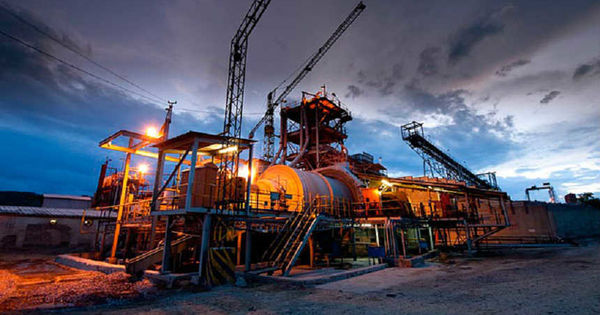BNC suffers major operational setback
BINDURA Nickel Corporation suffered huge operational setbacks in the year ended 31 March emanating from key equipment breakdown, and unexpected changes in the ore body, leading to a severe decline in the high grade resource footprint.
Reduced production levels saw tonnes of ore milled dropping by nine percent to 418 020 up from prior year’s tonnage of 461 130.
Low production levels had a bearing on finances as revenue was US$49,5 million compared to US$74,2 million in the prior year.
In its abridged audited financial results for the year ended 31 March 2023, the Victoria Fall Stock Exchange-listed mining house said the decrease in revenue was in line with reduced sales volume which was attributable to the lower production.
Outlining the operational hurdles, the firm said the mine was adversely affected by low underground mining mobile equipment availability due to obsolescence.
“The business was able to acquire four (4) new LHDs, in addition to face rigs, support rigs, and production long-hole rigs during the course of the year.
“However, the delivery of the equipment was delayed due to disruptions to global supply chains. Production was also negatively impacted by an unexpected change in the ore body, leading to a severe decline in the high grade massives resource footprint,” it said.
The mining entity said owing to an unexpected change in the ore body, it was imperative to have a rapid transition in the mining model.
“This change requires a rapid transition in the mining model from a low-volume, high-grade strategy to a low-grade, high-volume strategy. Unfortunately, the transition is behind due to the delays in the delivery of the new underground mining mobile equipment which is a prerequisite to the realization of the new mining strategy.”
During the second half of the year under review, the firm experienced additional operational challenges which exacerbated the situation.
It suffered a Sub-vertical Rock Winder (SVR) breakdown, which was declared a force majeure event, resulting in the loss of October and November 2022 production months.
There was limited hoisting capacity due to the damaged SVR bull gear which is expected to be replaced in August 2023.
“The SVR Winder continues to run at 60 percent of its capacity until the damaged bull gear is replaced in August 2023,” it noted.
“Against the backdrop of the above factors, ore hoisted for the year was 418,587 tonnes, which was 11 percent lower than the previous year’s 463,338 tonnes. Tonnes ore milled of 418,020 were nine percent lower than last year’s tonnage of 461,130, in tandem with the lower tonnage hoisted,” reads part of the financial results.
To address the operational challenges, the firm outlined various strategies for implementation which include expediting the transition in the mining model from a low-volume, high-grade strategy to a high-volume, low-grade strategy.
It seeks to replace damaged SVR bull gear in August and also replace a bull gear that is currently undergoing refurbishment in South Africa.
The fully refurbished bull gear is expected to be ready for installation in August, the firm said.
Other intervening measures include ensuring consistent equipment availability and accelerating underground development using the acquired new and rented equipment.
“The delivery of the new equipment during the period under review is expected to improve overall equipment availability in the ensuing year. In addition, plans are afoot to augment the current fleet in the new financial year by a combination of hiring and acquiring of additional mining equipment, and implementing various cost containment and cash-saving initiatives to ensure the business remains cost effective.”
In addition, the company’s parent Kuvimba Mining House (KMH) has put in place a support structure to cover working capital gaps and ensure the business is adequately funded.
US Dollars
In the period under review, revenue was US$49,5 million compared to US$74,2 million in the prior year.
The cost of sales increased by 18 percent to US$60,5 million, compared to US$51,4 million for the prior year with increases in power costs, high maintenance of aged equipment and the effect of exchange rate disparity playing a key role.
A gross loss of US$11 million was realised in the year under review, compared to a gross profit of US$22,8 million in the previous year, mainly due to the reduced sales volume emanating from the lower production. BNC is a mining company operating mines and a smelter complex in Bindura and is engaged in the mining and extraction of nickel and production of nickel by-products such as copper and cobalt.
It was founded in 1966 and is a subsidiary of Zimnick Limited and Mwana Africa plc, an African multi-national mining company based in Johannesburg, South Africa.
Trojan Nickel Mine Limited is a subsidiary of BNC.-chronicles











